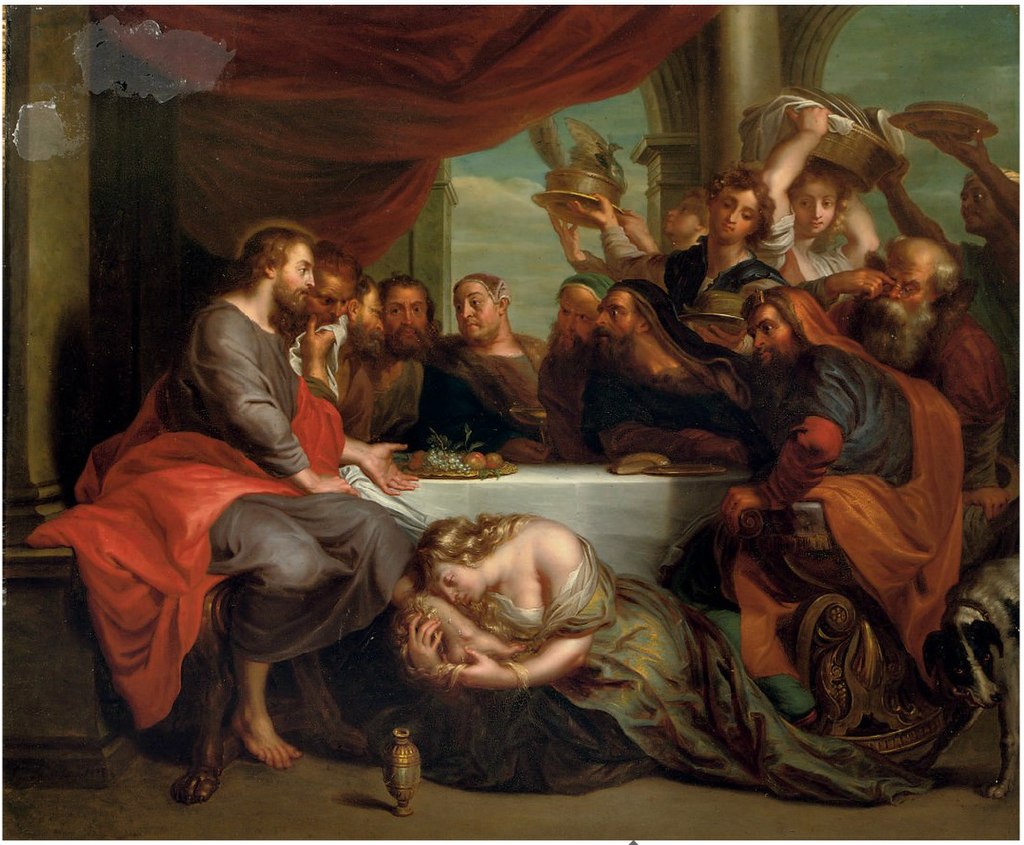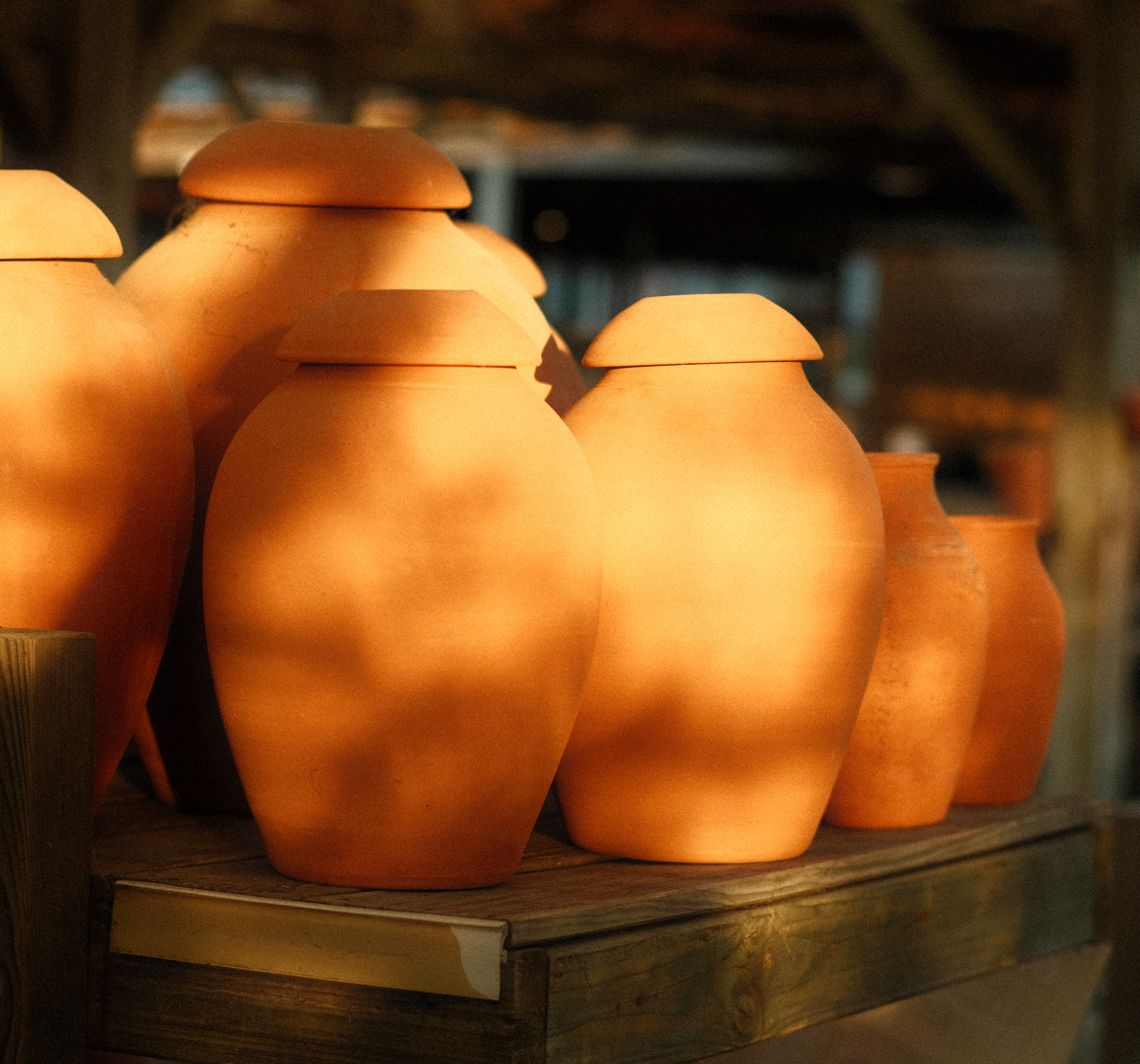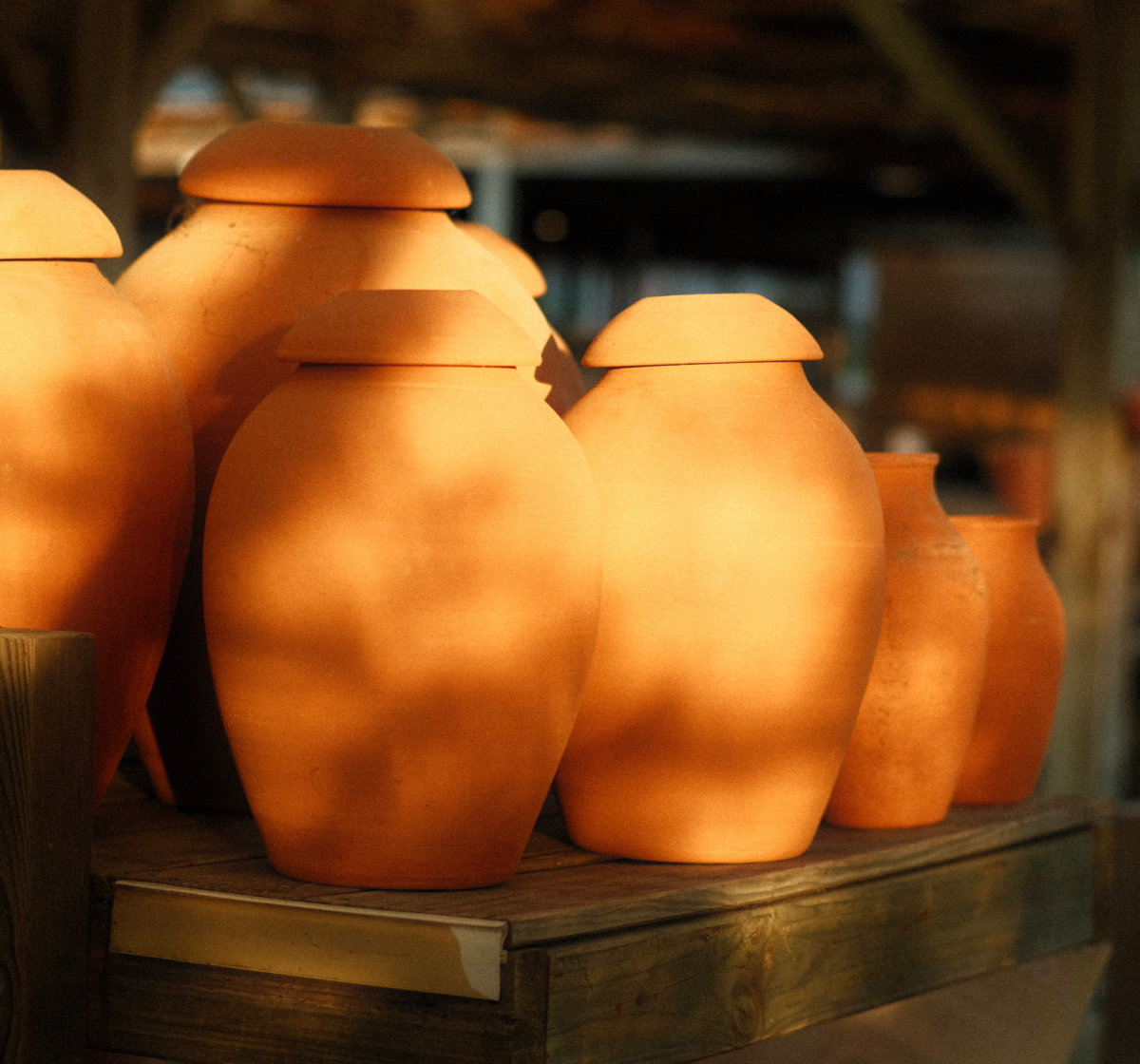Assuming Intentions
John 12:1-8
Fifth Sunday in Lent
Analysis by Ben Williams
1Six days before the Passover Jesus came to Bethany, the home of Lazarus, whom he had raised from the dead. 2There they gave a dinner for him. Martha served, and Lazarus was one of those at the table with him. 3Mary took a pound of costly perfume made of pure nard, anointed Jesus’ feet, and wiped them with her hair. The house was filled with the fragrance of the perfume. 4But Judas Iscariot, one of his disciples (the one who was about to betray him), said, 5”Why was this perfume not sold for three hundred denarii and the money given to the poor?” 6(He said this not because he cared about the poor, but because he was a thief; he kept the common purse and used to steal what was put into it.) 7Jesus said, “Leave her alone. She bought it so that she might keep it for the day of my burial. 8You always have the poor with you, but you do not always have me.”

Photo from Wikipedia
Whether we are betrayers, squanderers, doubters, or judgers, Christ welcomes us to the table. There we feast on the promise and begin to imagine a new way of being in this world.
DIAGNOSIS: Presumed Judgment
Step 1: Initial Diagnosis (External Problem): Pungent Accusations
Grounding: It is not often that readers of the Gospels find themselves agreeing with Judas Iscariot, the one who betrays Jesus. Yet, in this story, one cannot argue with Judas’ accusation that Mary has wasted an opportunity to live out the ministry Jesus has been preaching! But then, the narrator insists that Judas’ motivations where not as righteous as they first appear. In a sense both Mary and Judas stand accused of not living up to the call of Christ.
Tracking: The temptation to throw out quick, pungent accusations is commonplace in today’s anxiety-ridden cultural climate. There is just something so satisfying about exposing another’s unrighteousness in the face of uncertainty. We partake in this comparative righteousness as a way to boast our tenuous goodness; as if to say, “well, at least I am not stealing from the common purse.” Or, “At least, I didn’t just waste our most valuable asset!”
Step 2: Advanced Diagnosis (Internal Problem): Acrid Conviction
Grounding: Whether the narrator is right about Judas’ motivations or not, his conviction to the way, the truth, and the life is questionable. Just one chapter later, Judas is running out into the night to betray Jesus. It appears as though Judas’ fear, love, and trust is wrapped up in his own ideas of what Jesus has come to do. So, when Jesus actions seem counterproductive to Judas’ true conviction, it leaves a sour note hanging in the air.
Tracking: Adam Grant, an organizational psychologist, writes in his book, Think Again, “We favor the comfort of conviction over the discomfort of doubt, and we let our belief get brittle long before our bones.” Like Judas, we have a particular perspective on the world. And when that perspective is challenged we become brittle; unmovable in the face of opposition. And so, we double down on our judgments, our convictions, and beliefs no matter how misplaced they may be.
Step 3: Final Diagnosis (Eternal Problem): Perfused by Judgment
Grounding: Judgment abounds in this scene. Judas judges Mary for wasting the perfume. The narrator of John judges Judas’ motivations. And Jesus, turning to Judas, says, “Leave her alone…” And with Lazarus present in the room, the shadow of death hovers over all the judgment.
Tracking: When judgment permeates our way of being in the world, we can begin to feel isolated and cut-off from anyone around us. As we place our self in the judge’s seat, it is as though we become the one on trial. The judgement is turned against us; and we stand not only accused, but condemned. And, when judgment abounds, death lingers near.

Photo by Mathias P.R. Reding: Pexels
PROGNOSIS: Presumed Grace
Step 4: Initial Prognosis (Eternal Solution): Perfumed in Grace
Grounding: And even so, both Judas and Mary are present with Jesus at the table. Both the betrayer and the squanderer have a place at Christ’s table. Despite Judas’ accusation and the narrator’s judgment, Jesus welcomes both to the table—a table set in honor of Christ and hosted by the resurrected Lazarus.
Crossing: This is the grace of Christ that ascends from the depths of the cross, wafts through the empty tomb, to meet us where we are at. Whether we are betrayers, squanderers, doubters, or judgers, Christ welcomes us to the table. There we feast on the promise and begin to imagine a new way of being in this world.
Step 5: Advanced Prognosis (Internal Solution): Intoxicating Confidence
Grounding: Mary, recognizing the significance of the table that has been set, takes a most valued item and, placing all her trust in the one who raises the dead to new life, anoints Christ’s feet with the ointment. In the midst of the celebration, Mary takes the time to honor Jesus in the same posture that Christ will take in just a few days as he washes the disciples’ feet.
Crossing: Having smelled the sweetness of grace, our hearts are turned from our own convictions to the intoxicating confidence of Christ. Turning in that confidence, then, we are able to trust the musings of the Holy Spirit—even in the face of judgment and critique.
Step 6: Final Prognosis (External Solution): Fragrant Regard
Grounding: Jesus does not seem to share the narrator’s skepticism about Judas’ intentions. After telling Judas to leave Mary alone, Jesus explains Mary’s intentions and makes it clear that the poor will always be with them. There will always be opportunities for perfume to be sold and the money given to the poor (Deuteronomy 15:11). And so, Jesus seems to be calling Judas to live out this vocation.
Crossing: As Luther writes in the Small Catechism on the Eight Commandment, “We are to fear and love God, so that we do not tell lies about our neighbors, betray or slander them, or destroy their reputations. Instead, we are to come to their defense, speak well of them, and interpret everything they do in the best possible light.” What might the world look like if we could live into this calling? If we stopped seeing Judas as inherently evil, or Mary as inherently wasteful? What opportunities for reconciliation or healing might exist if we lived into this reality?




You must be logged in to post a comment.